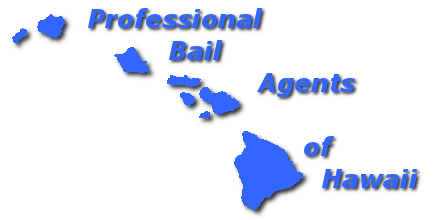Near the close of the first full day of the PBUS (Professional Bail Agents of the United States) winter conference they hold a happy hour mixer and new member reception. I have been a member of PBUS for many years, so the Las Vegas cocktail party is a little less awkward for me than perhaps it once was. I’ve learned that you’re among friends who speak the same language you do and understand this business we’re in. I really enjoy being in a room full of bail agents from all across the United States.
Anyhow, I spotted a guy that I have never met before but had noticed earlier in the PBUSGeneral Session featuring Michèle Stuart of Jag Investigations. Stuart had presented an all-day interactive breakout session on Internet Profiling and Intelligence Gathering. I asked this stranger what he thought of the class. He answered by pulling out his cell phone to show me a photo of a very unhappy looking guy sitting in the back seat of a car. He took a look at all the ribbons hanging off of my PBUS name badge. Concluding that I must be active with the association, he said, “You people need to raise the registration fees.”
Here is what happened. This agent, Michael Hansen, Sr., — like every other bail agent I spoke with — loved Michèle Stuart’s presentation. Even though it took up almost an entire day, most attendees were left with the feeling that it could have been longer still. Stuart really knows her stuff. And her stuff is of great value to us bail agents.
Michael Hansen, Sr., took notes during the class and paid particular attention when Stuart talked about how photos on the internet often contain “hidden” information which may well include geo-location on a subject. She taught us how you can often learn precisely where a photo was taken.
Hansen didn’t need to hear this part twice. He and his son, Mike Jr., have been seeking a fugitive on a $20, 000 bond they posted in Lebanon County, Pennsylvania. Using what they learned in the first breakout session of the PBUS winter conference, they had their bond skip in custody within three hours of the class.
This is why Michael Hansen, Sr., joked about PBUS raising their registration fees. This is also why his first PBUS conference will surely not be his last. What he learned directly resulted in the apprehension and surrender of his fugitive. This took place within three hours of learning the information in the PBUS class. I didn’t catch a bond skip, but now if I need help in York, Pennsylvania I know who to call for help. And I also learned a thing or two (or 50) in Michèle Stuart’s class.
If you are in the bail bond business, maybe you should be making arrangements to join and support the PBUS. The summer conference will be in Biloxi this July. How much will it cost you to miss it?




 A couple weeks back we wrote an article on the surprisingly controversial topic of “MONEY” in the criminal justice system and how it is being used by some in the public sector pretrial community like a Scarlett letter to shame the commercial bail industry. Unfortunately this argument is used all too often and it is an argument that in my opinion has no merit or relevance to the issues of jail overcrowding and bail reform.
A couple weeks back we wrote an article on the surprisingly controversial topic of “MONEY” in the criminal justice system and how it is being used by some in the public sector pretrial community like a Scarlett letter to shame the commercial bail industry. Unfortunately this argument is used all too often and it is an argument that in my opinion has no merit or relevance to the issues of jail overcrowding and bail reform.